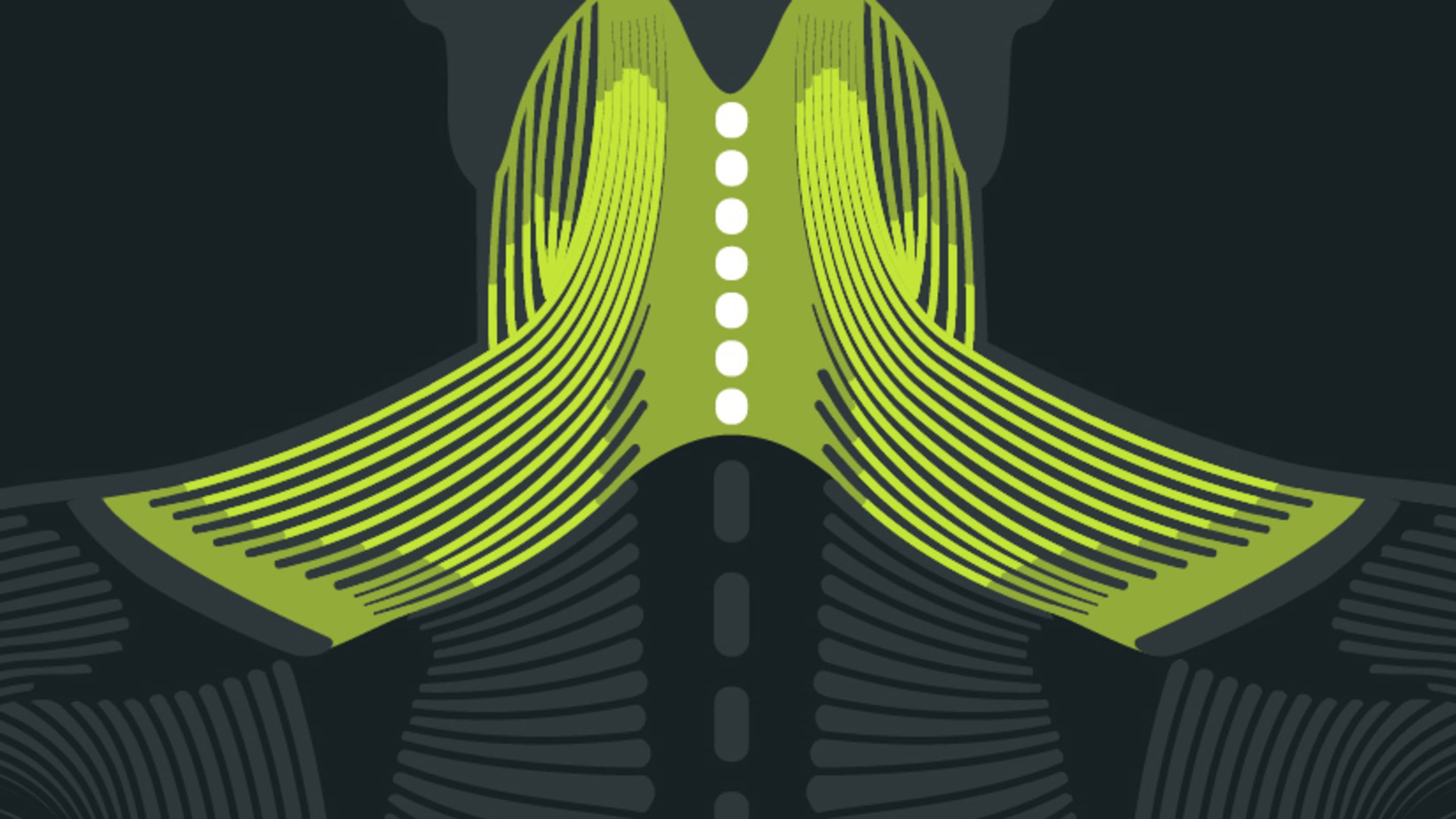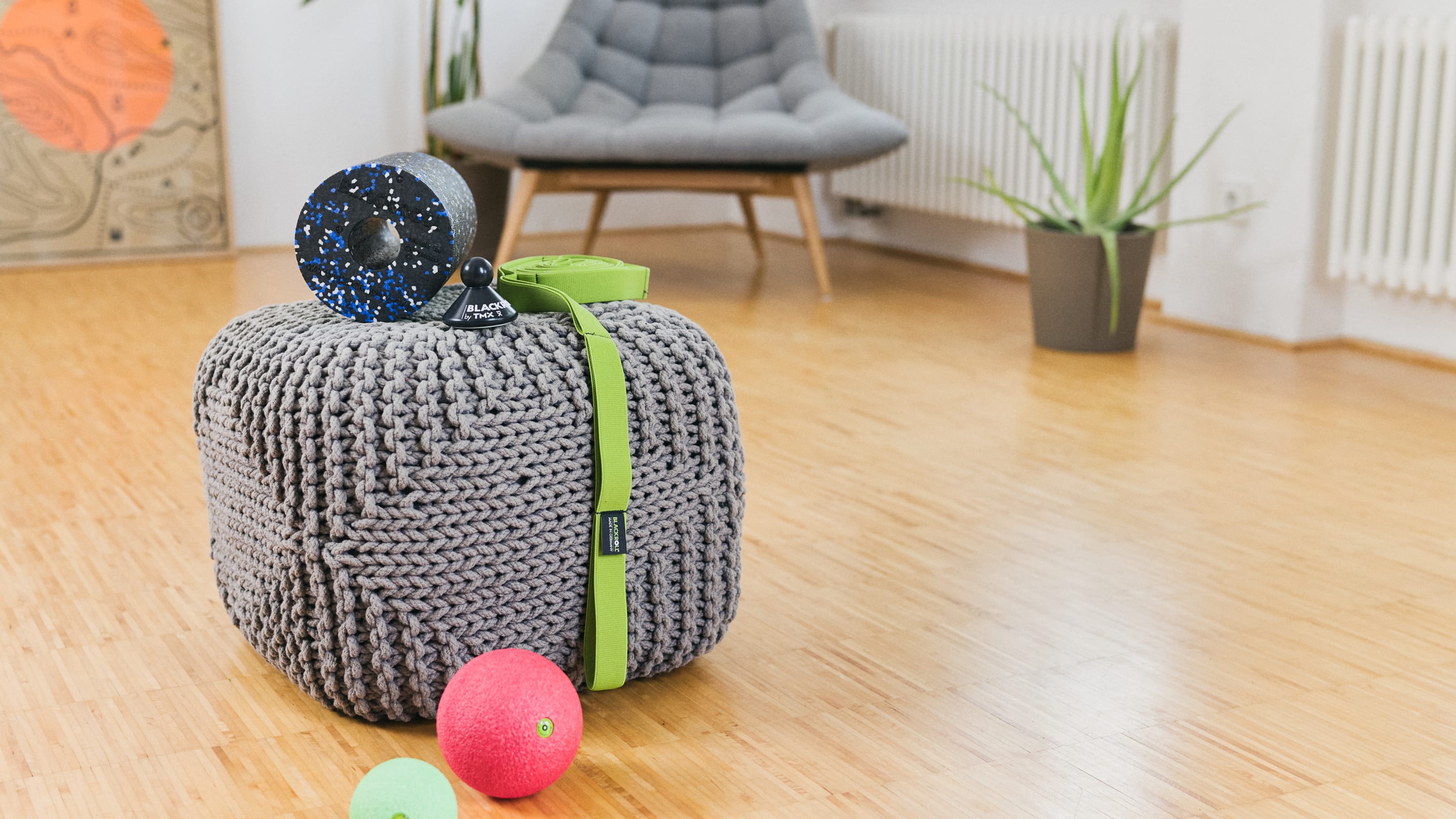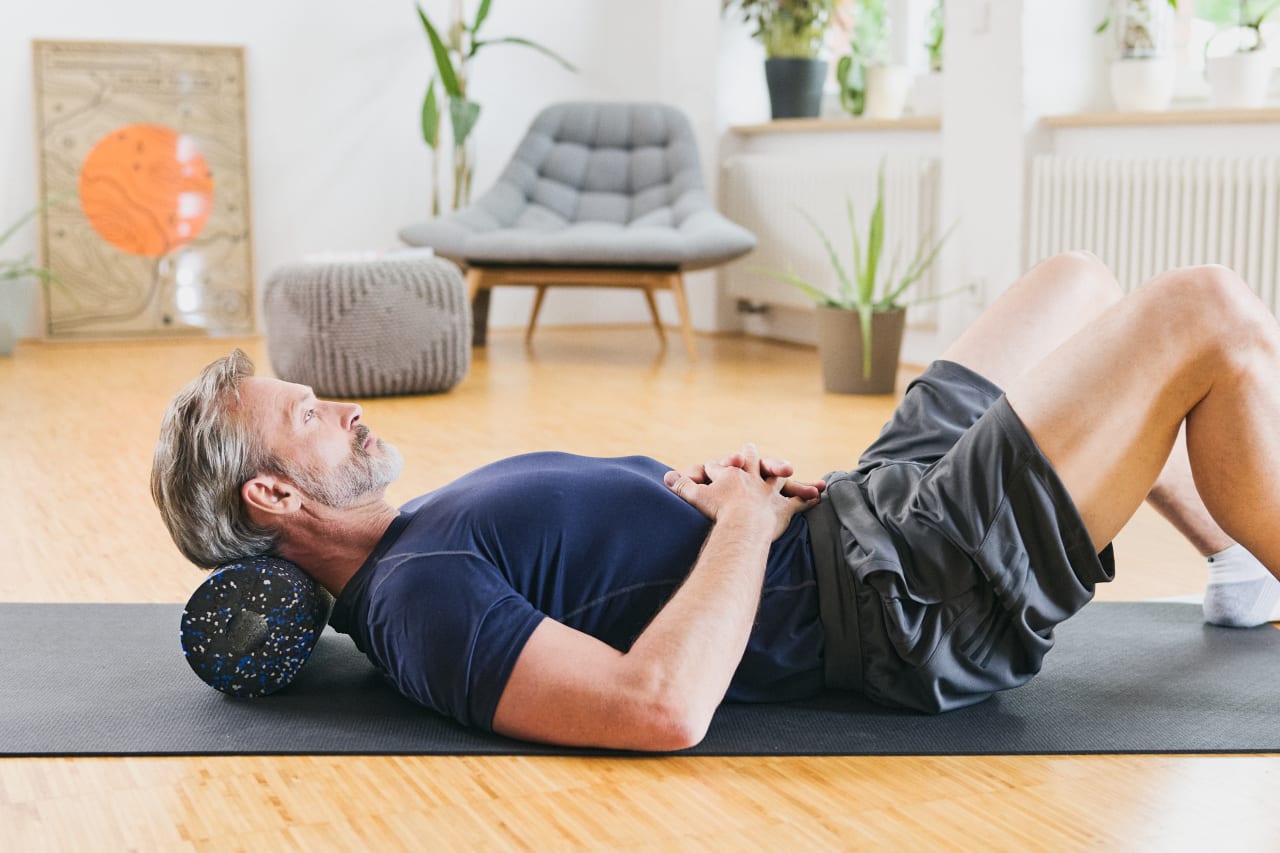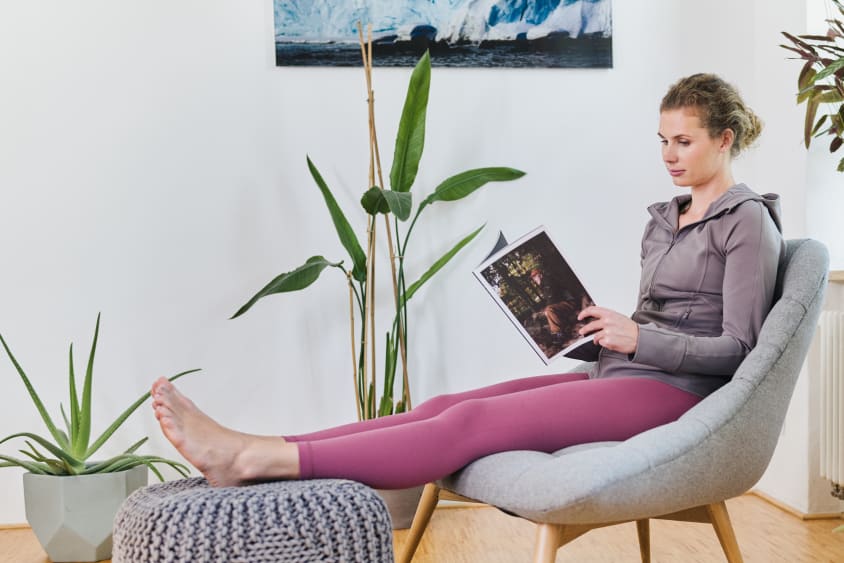
Does your neck hurt?

Learn all about the symptoms, causes, and what you can do about neck pain.
Your neck muscles do not have it easy, because they endure a lot in everyday life. They carry, stabilize and move your head, which weighs at least four kilograms. Neck pain can often be attributed to tension in the muscles and fascia around the cervical spine. Drafts, an awkward sleeping position and stress may also be the cause of your neck pain. However, acute neck pain is no reason to worry. We will explain to you which symptoms may occur and how you can alleviate your pain and give you tips on how to prevent tension in your neck muscles and therefore avoid neck pain. You will also learn when you should go to the doctor for your neck pain.
01. What is neck pain?
The neck is a sensitive area of your body. The cervical spine consists of seven vertebrae. Your skull rests on the atlas, which is the first cervical vertebra (C1). Numerous muscles, ligaments and nerves ensure its stable position, but you also turn and tilt it with their help. If you have bad posture in this area for a long time and it goes mostly unnoticed, or if you put too much strain on the neck area, this will overload your neck muscles. They lose their balance. This results in tension, muscle pain and tightness, and blood flow to the muscles decreases. Because of compensating postures and reduced blood flow, the fascia in the neck and shoulders can stick together. The tissue gets bound up and stiff as a result.
02. What are the symptoms of neck pain?
You rarely feel localized neck pain. Most of the time, it radiates into the shoulders, and sometimes even into the arms down to the fingers. Neck pain can also be felt on the back of the head and cause headaches, dizziness, visual problems and jaw pain. A stiff neck can also be a consequence of tense neck muscles. This means you can only turn or tilt your head with severe pain and mobility is significantly restricted. You may even feel hardness in your muscles. Pressure on these trigger points leads to neck pain and often to headaches.
Acute neck pain usually resolves itself within a few days to two weeks and is no cause for concern. Neck pain is described as chronic if it lasts longer than three months. If symptoms other than those mentioned appear together with neck pain, such as nausea, vomiting, sensitivity to light, fever, chills, nerve disorders, paralysis, etc., then you should definitely see a doctor. Your first point of contact is your family doctor, but depending on the symptoms, an orthopedist, a neurologist, psychotherapist or psychiatrist may be the right choice.
03. What are the causes of neck pain?
Neck pain is your body’s warning signal that the system is out of balance or overloaded. It is telling you that you need to change your daily routine.
Some causes for neck pain can be:
Poor posture: the main cause of pain and tension in the neck could be when you lean forward. Your neck muscles must compensate for this movement by overstretching and constantly pulling against it. This mainly affects people who work on computers for hours and look down onto the screen. They also strain their neck and shoulders by reaching forward to operate the keyboard and mouse. This upper body position is extremely stressful for the ligaments and muscles around your cervical spine.
Shallow breathing: even your breathing can cause tension in your neck. Everyday life and primarily sedentary activities often encourage an unhealthy breathing pattern. You breathe shallowly through your chest and forget about breathing from your abdomen. The result is that the diaphragm does not move enough and the fascia stick together. The lungs need to expand when you inhale. If they cannot expand toward the abdomen, chest or back, the only way is up. This leads to raised shoulders and tension in the neck.
Stress, neck pain related to psychological factors: almost every illness can result from conscious or unconscious psychological stress. Excessive stress, workplace bullying, ongoing internal conflicts or experienced traumas often manifest as back, neck and headaches. When mental factors cause physical symptoms in the body, doctors call that psychosomatic pain. When someone is stressed, they often compress their jaw muscles, which react in conjunction with the neck muscles.
An awkward sleeping position: if you sleep with a kinked or twisted cervical spine, you may often experience neck pain or blockages in the morning after sleeping and are less flexible in your shoulders and cervical spine.
Herniated disc in the cervical spine: a herniated disc indicates a loss of the elasticity of the intervertebral discs due to longer-lasting imbalances in the muscle and fascia tissue. Pain can radiate into the arms. You may also experience tingling or numbness. You can find more information about herniated discs here.
“Ninety percent of all neck pain is the result of poor posture due to one-sided activities such as computer work, driving a car or staring at a cell phone. The shortened chest muscles and the forward position of the head multiply the head’s weight by up to six times, which in the long run strains the neck muscles and the cervical spine.” Dr. Torsten Pfitzer, holistic pain therapist and health coach
04. What should I do if I have neck pain?
Relaxation exercises and warmth help with acute pain and tension. A hot bath or a hot water bottle can alleviate your symptoms and help you get through the day. In addition to no longer being in pain, the main goal should be to restore the full range of motion in the neck. That prevents compensating postures and neck pain. Movement is important: neck braces are becoming increasingly rare, which is a good thing, because immobilized muscles and fascia wither and become matted, making them even more susceptible to tension.
The three pillars of the BLACKROLL® approach:
- Self-massage using myofascial techniques: you can relieve tension in your neck with BLACKROLL® self-massage. Just be sure to also work on your chest and anterior neck muscles as part of the neck massage.
- Mobilize your spine: in addition to the self-massage, you should stretch your neck muscles – for more mobility and improved blood circulation. You can easily mobilize the side and back neck muscles by shifting your head accordingly. You should also work on your posture by stretching your often-shortened chest muscles.
- Strengthen and activate muscles in a targeted manner: strengthening the muscles in the back, shoulders and neck in the next step is crucial to reduce pain and prevent it in the long term. You will improve your posture and ideally be spared neck pain in the future.
05. How to prevent neck pain
Do you want to prevent neck pain in the long term? Then we recommend that, in addition to the targeted exercises for neck pain, you optimize your everyday habits:
Work on maintaining good posture: good posture is not only good for your health; it also makes you seem more self-confident. Let’s start now: pull your shoulder blades back and down and stick your chest out. Make sure that your lower back and neck stay straight. Most people have a hard time maintaining body awareness throughout the day. BLACKROLL® POSTURE reminds you to maintain proper posture. To prevent neck pain in the long term, you should take regular breaks during office hours. Be sure to frequently change your position at your workstation – this will keep your head and arms as balanced as possible.
Breathe from your abdomen: place a hand on your stomach (between your navel and chest) while sitting or lying down. Actively breathe against your hand. You will notice it relaxes your soul and body.
Relaxation techniques: you can lower your stress levels with relaxation methods like autogenic training, meditation, yoga, etc. Find a way to reduce stress.
A muscle-relieving sleeping position: at night, you can support your neck with a stabilizing pillow so you don’t wake up in the morning with neck pain. People who sleep on their stomach often twist their cervical spine too much, so this sleeping position is not recommended.
You want everything in one neck pain set incl. premium online training? Address your neck pain with the BLACKROLL® NECK BOX.
Online training included







